Interview: Anais Reno of LOVESOME THING
Lovesome is a real word, and Anais Reno is the real deal.
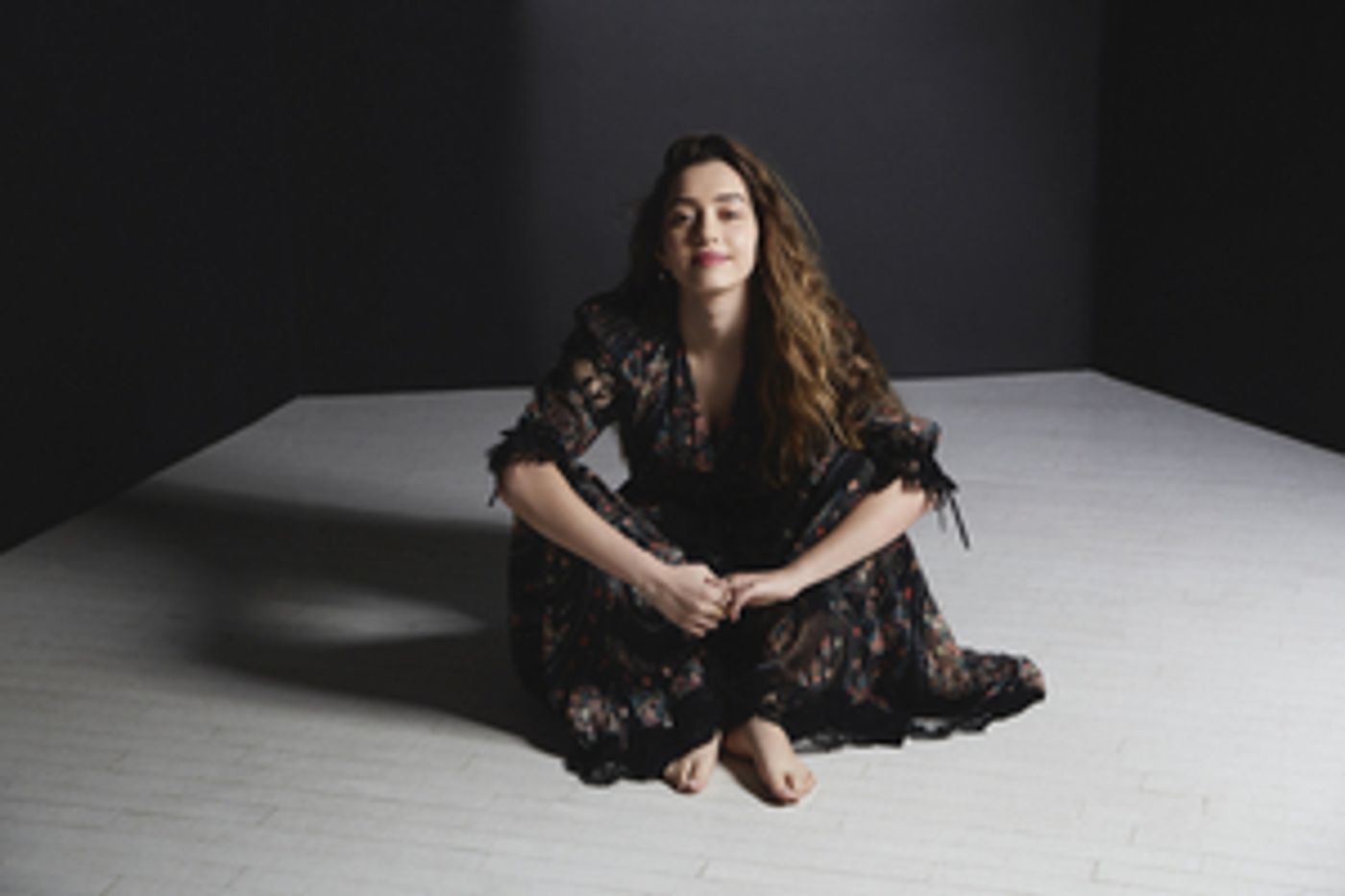 Anais Reno is a modern woman. She's strong, she has a voice, she has a vision, and she has a firm knowledge of who she is... and that who she is is a continually evolving definition. She speaks eloquently and honestly about herself, her art, her family, and then she takes all that information with her into the recording studio, or up onto the stage, where she applies it all to her artistry. She is an extremely human miracle in the making, as her already impressive career in the music industry proves on an almost daily basis. What makes her special? A lot of things, none of which have anything to do with her age. You see, Anais Reno is still a high school teenager.
Anais Reno is a modern woman. She's strong, she has a voice, she has a vision, and she has a firm knowledge of who she is... and that who she is is a continually evolving definition. She speaks eloquently and honestly about herself, her art, her family, and then she takes all that information with her into the recording studio, or up onto the stage, where she applies it all to her artistry. She is an extremely human miracle in the making, as her already impressive career in the music industry proves on an almost daily basis. What makes her special? A lot of things, none of which have anything to do with her age. You see, Anais Reno is still a high school teenager.
Much ballyhoo has been made, and will be made, about Reno's age and the fact that her accomplishments have been achieved so early in her life. Anais appears nonplussed by her life journey so far, as though her outlook on music and her aptitude for the art form were as easy as waking each day and breathing in and out. That may be the result of being the child of two professional musicians and growing up with the language of music flowing through her everyday life; perhaps Anais Reno learned living inside of music at the same time that she learned to walk, to talk, to make rational decisions throughout the day, all the while breathing in and out because that is the natural human way. For Anais Reno, music is the natural human way - whatever her age may be. The answer to the jazz singer's seeming prodigy lies somewhere in the ether and the fabric of her life, so far, and her age is purely incidental. She's just a woman, like every other woman. She's just a singer, like every other singer. She's just really, really, good at it.
Anais Reno has just released her debut album, a set of songs by two of her favorites, Misters Ellington and Strayhorn. In honor of the birth of the CD and the birth of Duke Ellington (April 29th, 1899) Broadway World Cabaret is proud to share with readers a chat Ms. Reno had with us, just two days ago, about music, mom and dad, and ageism in the industry.
This interview has been edited for space and content.
Anais Reno, welcome to Broadway World! Congratulations on your debut album. How are you feeling about it?
 To be quite transparent with you, it hasn't really hit me yet. I get it because it's my first one... it's not something that I'm used to. The climax isn't what it would have been, had things been normal - there might've been an album release party following the actual release, I might've had some friends over... but it was a lot more calm, which is totally fine. There isn't just one way to release an album. I'm kind of just waiting for it to hit me.
To be quite transparent with you, it hasn't really hit me yet. I get it because it's my first one... it's not something that I'm used to. The climax isn't what it would have been, had things been normal - there might've been an album release party following the actual release, I might've had some friends over... but it was a lot more calm, which is totally fine. There isn't just one way to release an album. I'm kind of just waiting for it to hit me.
I've heard a lot of people say the same thing. I went through it when my first book came out, and my movie; so whenever I know somebody that's releasing something I advise them to just be in the moment and enjoy the experience because it won't come again. So if it hasn't hit you yet, you get to sit back and relax and wait for it. It will come and you'll be prepared to be in that moment. You'll always remember it.
Well, that's really good advice. Thank you.
Well, I'm old, I have good advice. So I have listened to the album from start to finish the way that a person is supposed to listen to an album, not just a song at a time.
And I appreciate it.
I just love it. I've seen a lot of friends through their own recordings of their albums, and I'm always interested to know: do you listen to your album?
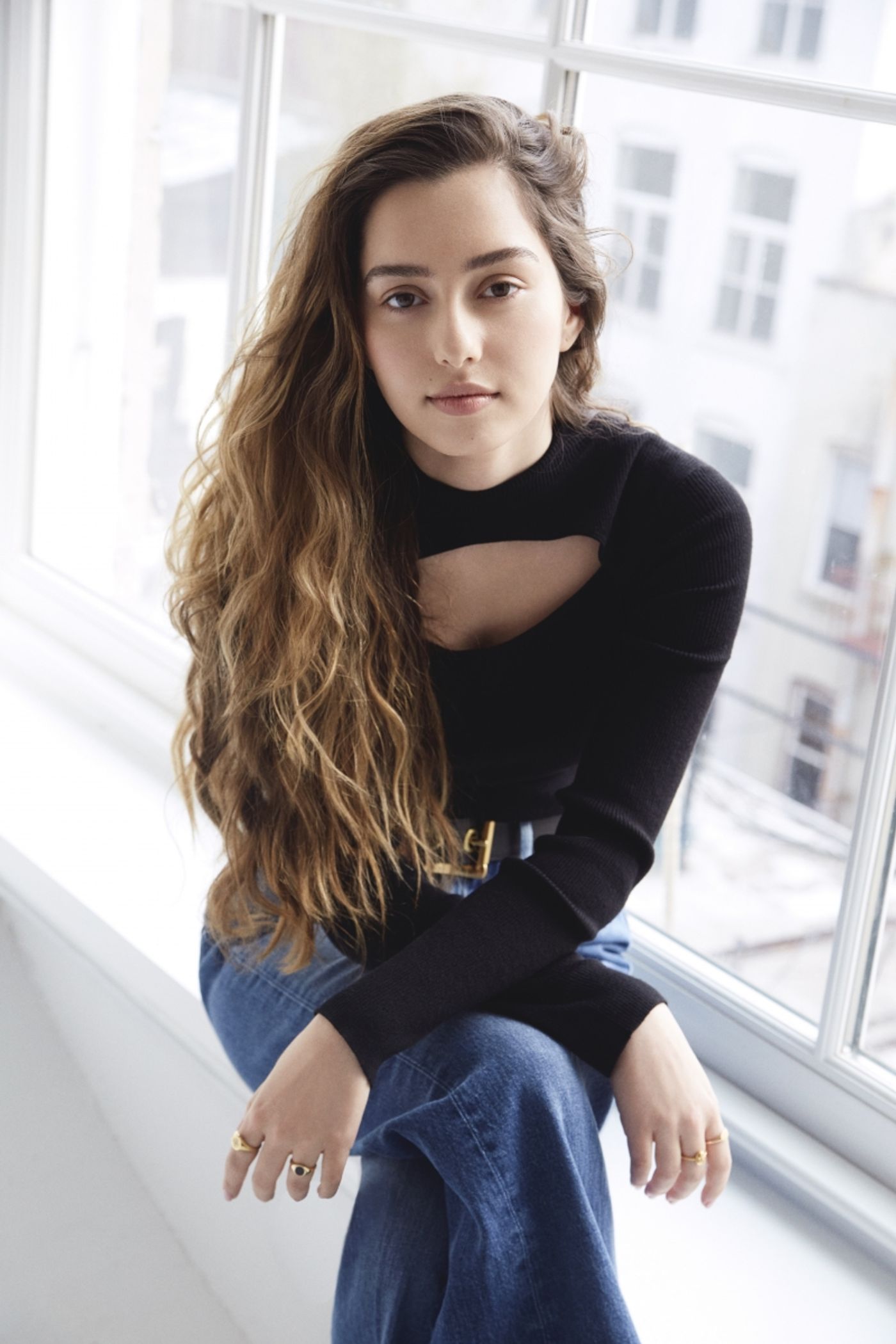 I have listened to it many times - there's no way around that, through all of the mixing and mastering and deciding the sound and the cuts and everything. I don't regularly listen to it because I've gotten so tired of it. I've heard it so much that I don't even know what it sounds like anymore. Genuinely. I don't even know what my voice sounds like. I can't hear what's on the tracks anymore because I've heard it so much. I know that I'm not the only person who has experienced that. It's definitely a weird feeling though because somebody will come up to me and they'll tell me something that they thought about one of the songs and I think to myself, "How do you even hear that?" What I am hoping is that maybe in a few months or a year, I'll come back to it and I'll think, "This feels fresh again."
I have listened to it many times - there's no way around that, through all of the mixing and mastering and deciding the sound and the cuts and everything. I don't regularly listen to it because I've gotten so tired of it. I've heard it so much that I don't even know what it sounds like anymore. Genuinely. I don't even know what my voice sounds like. I can't hear what's on the tracks anymore because I've heard it so much. I know that I'm not the only person who has experienced that. It's definitely a weird feeling though because somebody will come up to me and they'll tell me something that they thought about one of the songs and I think to myself, "How do you even hear that?" What I am hoping is that maybe in a few months or a year, I'll come back to it and I'll think, "This feels fresh again."
I actually get my book down once a year and look through it so that I can say "this is a good book." And then I put it away for another year.
When you're so close to the project, it's hard to tell what the experience is to read it or listen to it or look at it.
Well, since this was your first time out, tell me what parts of the process were exactly like you thought they would be, and what surprises lay in store for you.
I was not surprised by my perfectionism in the studio when I was there. I was constantly nitpicking at things. That can be a good thing, but I did get a little bit obsessive about it - that wasn't totally surprising. What was a bit of a surprise though, was that my classically trained violinist perfectionist mother (who I learned my perfectionism from) even told me, "You need to cool it. You're taking it a little bit far." It was an interesting thing, to see that even my mom thought that I was taking it a little bit too far. It was funny.
It's good to have someone there to keep you centered, and parents are pretty good at that.
Yeah.
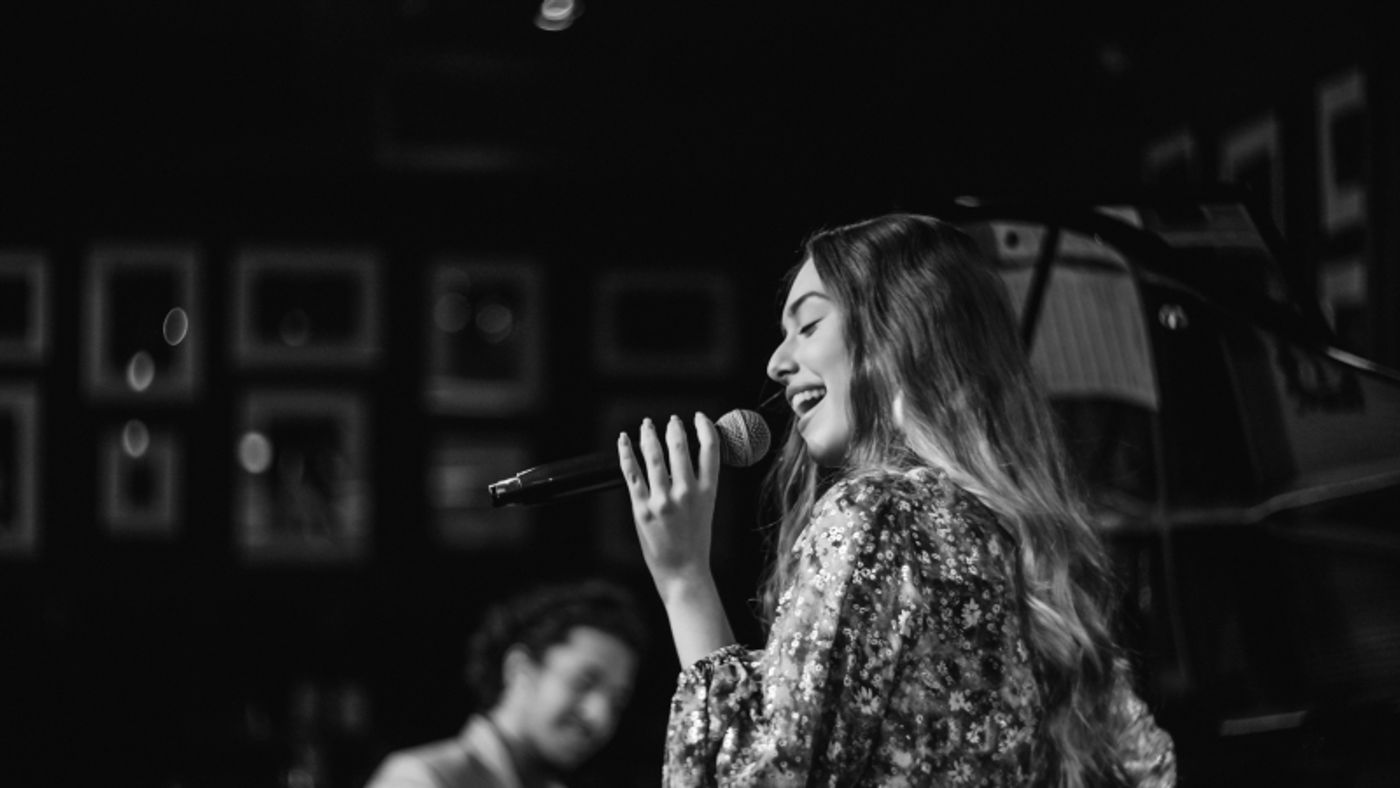
So when all was said and done, did you finish the project with the list of songs that you started with?
Not completely.
Why did you make the changes that you made?
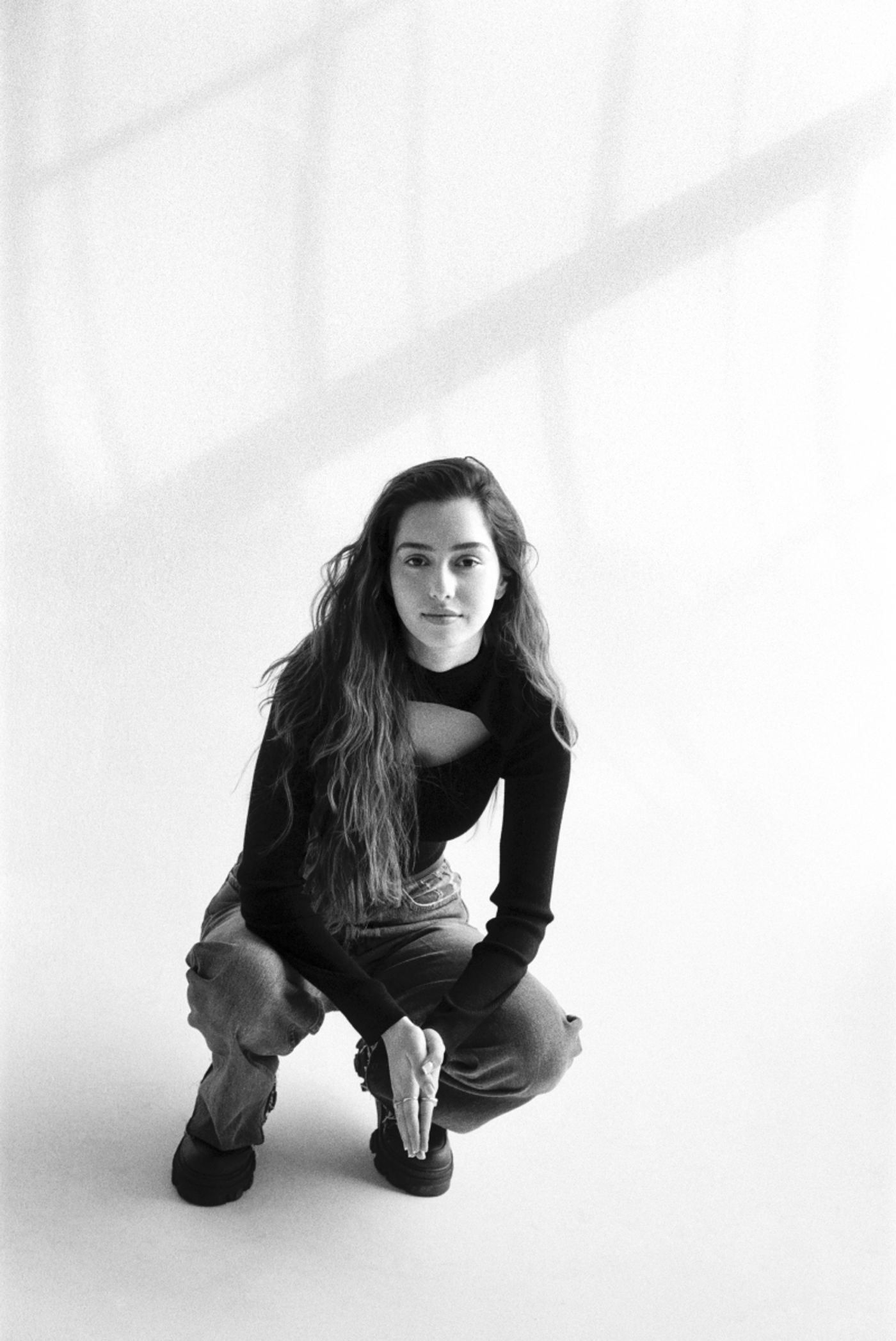 Obviously, the concept from the beginning was going to be Duke Ellington and Billy Strayhorn music, that was never a question. But in terms of the actual song choices, we originally had 11 tracks in total, and one of them was "I'm beginning to see the light" by Duke Ellington. We had already recorded the album and we were in the midst of choosing takes and doing all of that meticulous work, and my voice teacher and my mom spoke on the phone - they both thought that "I'm beginning to see the light" didn't quite have a secure place on the album. We took the setlist from a set that I did at Birdland just a couple of months before the pandemic started and the idea that one of the songs that I picked wasn't album material didn't quite cross my mind; once they mentioned it to me, I completely understood, so we took it out. I had 10 songs, but it was a little ballad-heavy, and a little Ellington-heavy - I tend to be ballad-heavy. I love slow songs, I love sad songs. I knew that if I was going to add something, I wanted it to be Strayhorn, but there are not a lot of known vocal Strayhorn tunes that are also up-tempo. So I reached out to David Hajdu and he lent me a cassette tape that had one of the only recordings of "Still In Love", which is a very obscure Strayhorn tune. That got added to the album, and in the original set that I did at Birdland, I had "I'm Just a Lucky So and So" - for some reason I developed a really intense grudge for the song - I hated the song after doing that show, so it wasn't on the album... but we needed more songs. My mom said, "What if you do that song?" So we switched the arrangement, changed the feel, and now it's one of my favorites on the album.
Obviously, the concept from the beginning was going to be Duke Ellington and Billy Strayhorn music, that was never a question. But in terms of the actual song choices, we originally had 11 tracks in total, and one of them was "I'm beginning to see the light" by Duke Ellington. We had already recorded the album and we were in the midst of choosing takes and doing all of that meticulous work, and my voice teacher and my mom spoke on the phone - they both thought that "I'm beginning to see the light" didn't quite have a secure place on the album. We took the setlist from a set that I did at Birdland just a couple of months before the pandemic started and the idea that one of the songs that I picked wasn't album material didn't quite cross my mind; once they mentioned it to me, I completely understood, so we took it out. I had 10 songs, but it was a little ballad-heavy, and a little Ellington-heavy - I tend to be ballad-heavy. I love slow songs, I love sad songs. I knew that if I was going to add something, I wanted it to be Strayhorn, but there are not a lot of known vocal Strayhorn tunes that are also up-tempo. So I reached out to David Hajdu and he lent me a cassette tape that had one of the only recordings of "Still In Love", which is a very obscure Strayhorn tune. That got added to the album, and in the original set that I did at Birdland, I had "I'm Just a Lucky So and So" - for some reason I developed a really intense grudge for the song - I hated the song after doing that show, so it wasn't on the album... but we needed more songs. My mom said, "What if you do that song?" So we switched the arrangement, changed the feel, and now it's one of my favorites on the album.
What was the reason that you chose a partial title from one of the songs for the album?
I think that track, "Chelsea Bridge/A Flower Is a Lovesome Thing" is very telling of the tone of the album. There's something nostalgic, there's something melancholic, but there's also something very sweet and ethereal about it. And just the phrase, "lovesome thing" - it's such a beautiful phrase. Lovesome is an actual word, but it's not typically used, and it's striking to me - that stood out to me. This music is a lovesome thing to me - it's striking and it's unique.
The dissection of that song title to give your album a title makes me wonder if you dissect the songs themselves when you're preparing to perform them,
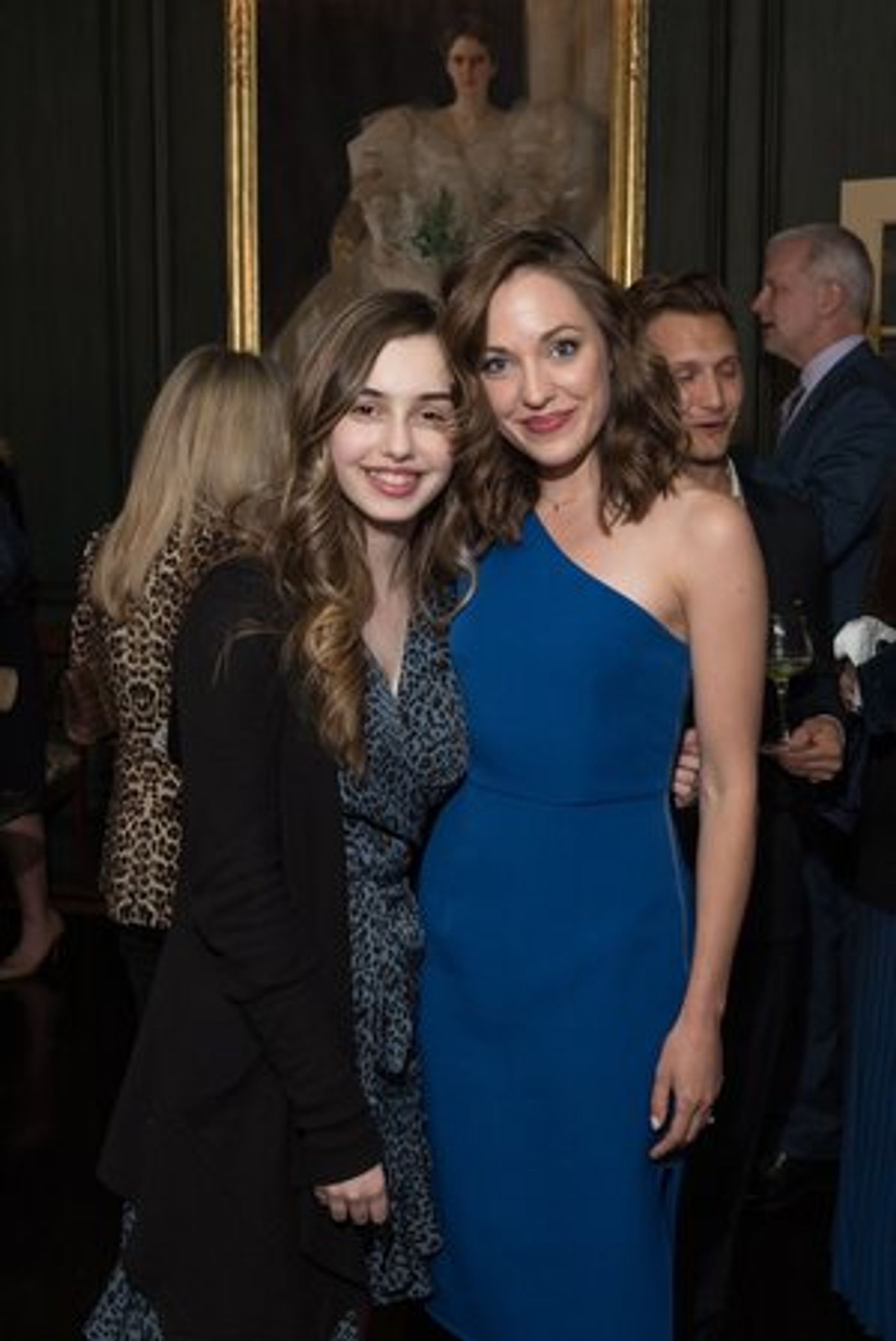
Yes, I do. I look at the songs as if they're monologues - all the greats say that, and it's great advice. I'm a drama major at my school, so I take it, I look at what makes each phrase different. I think it's easy to approach each phrase as one big cloud of emotion but in reality, they're all saying something different. Even if you repeat them, like most jazz standards do in arrangements, there's a reason for all of it. I think that dissecting the lyrics can gray out a new tone to the song that you might not realize on the surface.
You've been at this for a while. When did you begin actively diving into the lyrics this way?
A couple of years ago, I'd say my sophomore year of high school. I started to work on the interpretation of lyrics with one of my drama teachers at school, Mr. Lobenhofer, whom I adore, we're very close. Since then, it has come up more and more as I've been working, and it's so interesting what you can find when you treat each line as an individual expression.
You began your musical pursuits at an early age, giving you a musical vocabulary that's more extensive than some who have senior years on you. Do you feel like a prodigy or do you think that you're ahead of the curve because you started so early?
Oh, no. I don't even feel like I'm ahead of the curve. I just think that I'm learning what people are telling me - I'm trying to keep up. I really don't think of myself as any sort of prodigy or kid who's ahead of the curve. I'm lucky to have known people and grown up in a place where you're constantly learning things from them - I think that that's really all it is.
You've mentioned that you're still in high school. Do you find that you are exposed to any ageism because you've accomplished so much at such a young age?
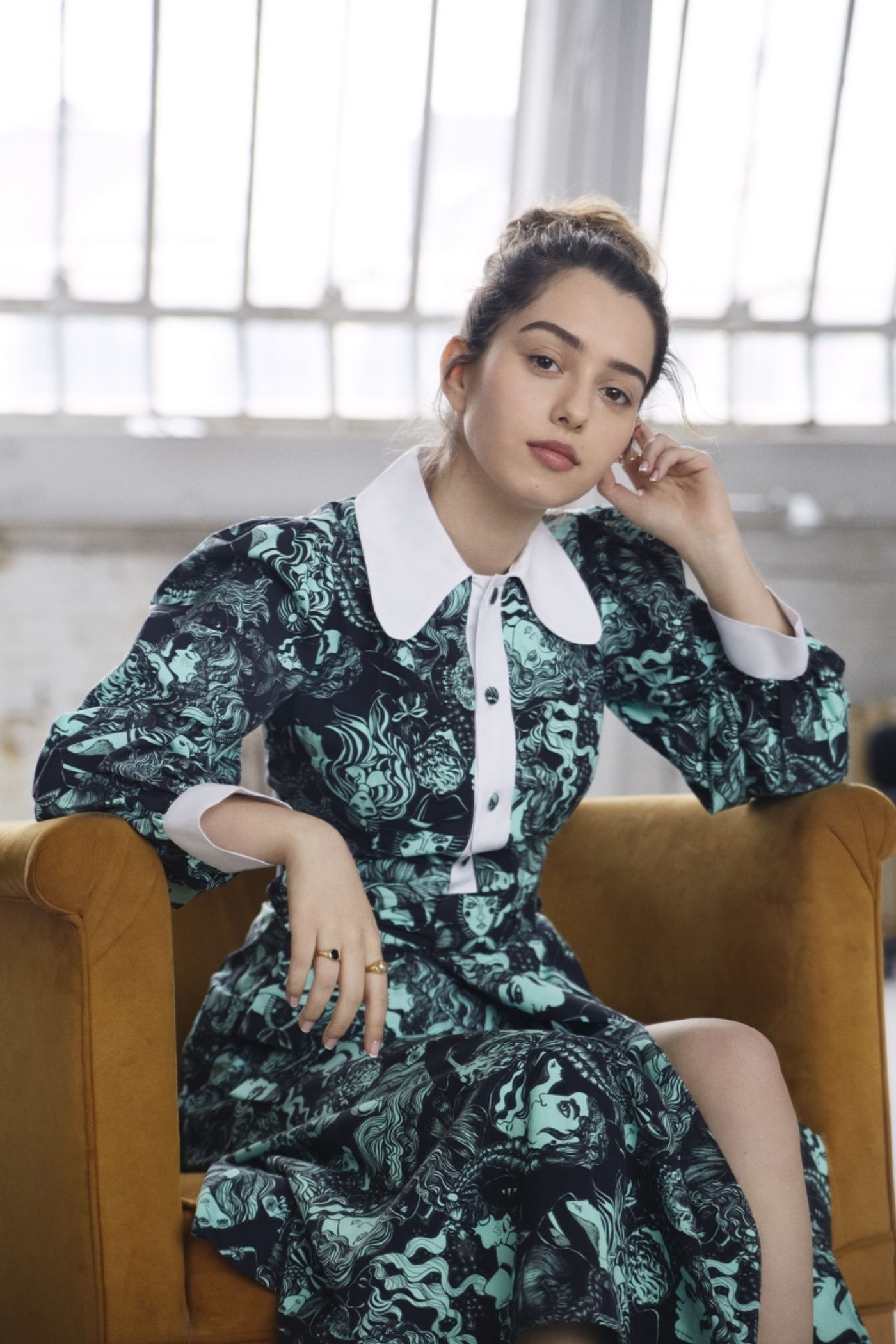 I don't think that I've been exposed to ageism in terms of the things that I get to do and the things that I've done. I do experience ageism in terms of what people think I'm allowed to sing. I don't want to complain or anything, but I'm being honest with you: I experience people from time to time telling me that I can't sing certain songs because of my age. I think the first time that somebody said that to me I was 13, and I didn't quite understand it, and it used to make me feel insecure. Then I got to a point where now I don't care. Really. People are entitled to their opinion but at the end of the day, my opinion is what is going to drive my work. There are a couple of songs on the album that people have told me I'm too young to sing - they've told me, "You can't sing that authentically" but before even hearing me sing it... just because of my age. I understand that I haven't been through an intense heartbreak. I understand that I have not been divorced three times. I understand that there are a lot of things I have yet to go through but it is possible to get into a mindset. Also, just because my experience hasn't been identical to the one in the song, that doesn't mean that I can't draw from something else. "Lush Life" in particular is one of the songs I'm referring to. I think people forget sometimes he wrote that at 19, he wasn't much older than I am.
I don't think that I've been exposed to ageism in terms of the things that I get to do and the things that I've done. I do experience ageism in terms of what people think I'm allowed to sing. I don't want to complain or anything, but I'm being honest with you: I experience people from time to time telling me that I can't sing certain songs because of my age. I think the first time that somebody said that to me I was 13, and I didn't quite understand it, and it used to make me feel insecure. Then I got to a point where now I don't care. Really. People are entitled to their opinion but at the end of the day, my opinion is what is going to drive my work. There are a couple of songs on the album that people have told me I'm too young to sing - they've told me, "You can't sing that authentically" but before even hearing me sing it... just because of my age. I understand that I haven't been through an intense heartbreak. I understand that I have not been divorced three times. I understand that there are a lot of things I have yet to go through but it is possible to get into a mindset. Also, just because my experience hasn't been identical to the one in the song, that doesn't mean that I can't draw from something else. "Lush Life" in particular is one of the songs I'm referring to. I think people forget sometimes he wrote that at 19, he wasn't much older than I am.
I think that a lot of people forget some of the literature we are asked to read in school and the experiences they evoke. There's no reason for the experience of singing a song to be any different than the experience of reading adult literature.
Very true, very true.
So on the subject of ageism, have you noticed that the jazz artists with more longevity are subject to more respect than regular civilians at their age?
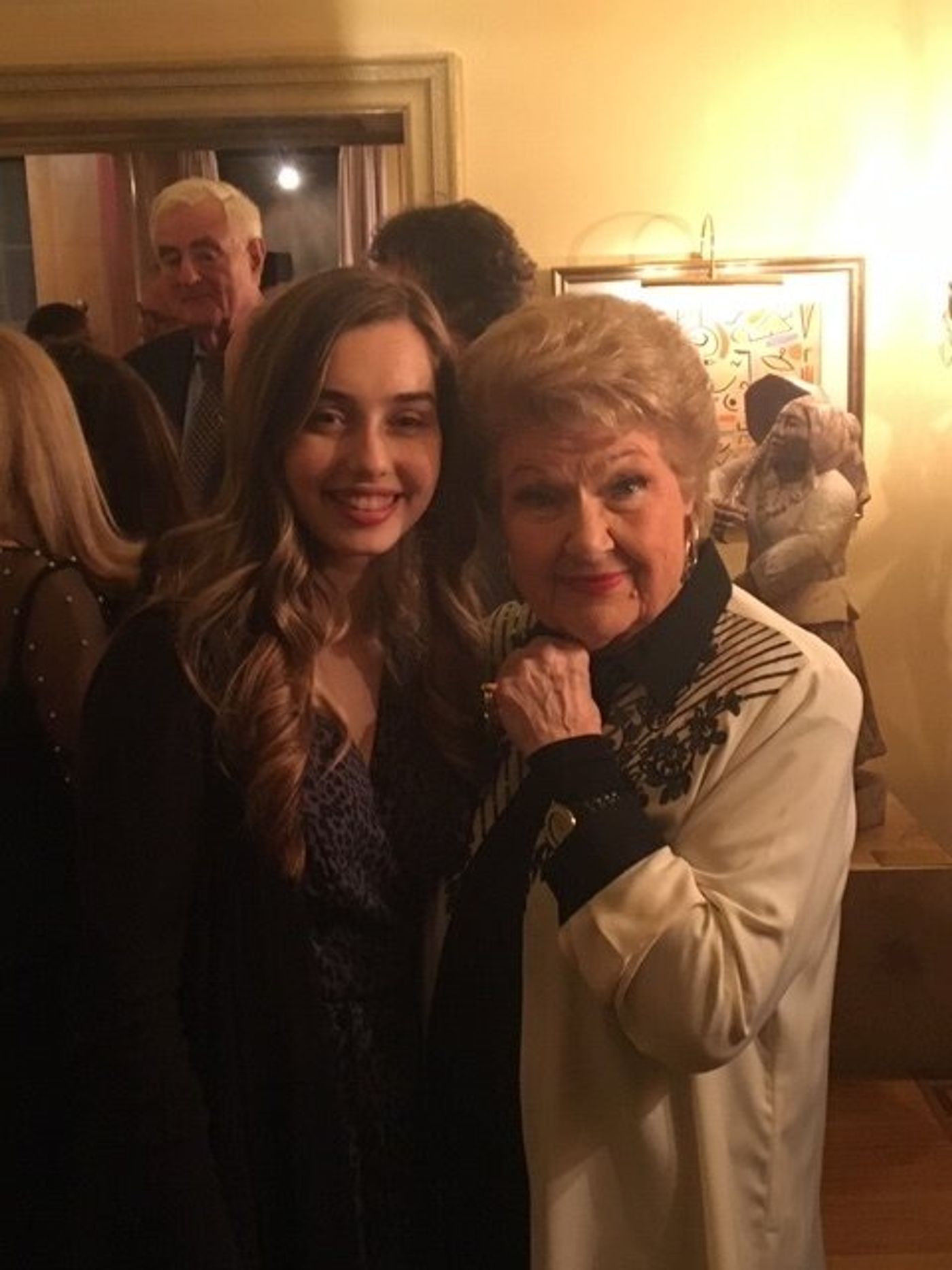
It's hard for me to say because I don't know many people that age and most of the older people I do know are in the jazz/cabaret community. So it's a little hard for me to say but I suppose that there are certain things that might be a little bit of a double standard. You might find one thing endearing in a well-renowned musician that you find frustrating in "regular" civilians. Honestly, because most of the people I know that are above 40 are musicians, it's hard for me to say from what I've seen, personally, but I think that's an interesting point and I want to pay attention to that.
You've had the good fortune to meet and work with some of the legends - are you able to point to any of the artists who have come before as artists who have had an influence on your own work?
Frank Sinatra, Sarah Vaughan, Carmen McRae, Mel Torme, Ella Fitzgerald, Johnny Hartman. I think that those are the big six for me... but those are all dead. Living... I've watched Veronica Swift and been in awe of her work, and I've watched the band that's on this album work and create, and be inspired. They have inspired me, even though they're not physical vocalists, they still understand the art form in a way that I could only dream of. I love Dianne Reeves. I think she's absolutely fabulous, so soulful, so in everything she does - she gives it her all, and her stage presence is so good. And of course, Tony Bennett - I had the great fortune of meeting him once.
Each one of the people that you just mentioned had their own thing - how did you develop your sound?
I think I'm still developing it. I have a long way to go in terms of feeling concrete with what I'm putting out, but I think anybody who loves jazz (or who loves music in general) and pursues it themselves can say that we are really just a funnel of the mixture of all of our favorite artists, then we add our own personality into it. One thing that I will say has influenced the way that I sing, at least as of now, is that there's a little bit of a darkness to it, pretty much at all times, in terms of my tone, of my approach, and that comes from who I am as a person. So I think naturally everybody brings their own personality.
What do you think draws you to the darkness?
I love sad songs. I love dark poems. I love sad movies. I love sad prose. I love sad poetry. It's just something that has always resonated with me - not because I'm so dark and tortured myself. I've had a very privileged, very lucky life, but I love the depth of it, I love the realism of it, I love the poetry of it, I tend to romanticize that a little bit more than I should, which is something I'm working on. As of now, that's the mindset that I'm in, in that art, that literature,
Recommend a sad movie to me for the next time I want to cry.
Oh, okay. I wouldn't say that this is overall a sad movie, but the beginning always makes me cry. You might've seen it: UP.
Oh my gosh! The first 10 minutes of UP are the saddest thing ever put on film!
Yes! Yes! I used to be a little embarrassed that that's my favorite movie, but I'm not because it gives you everything, it takes you through an emotional rollercoaster. And to be honest, even though I love all of these sad things, I am seldom emotionally moved by art in general. It never makes me cry. It takes a lot to get me to laugh, to have my heart soar with joy, but that movie just does it all for me, especially at the beginning.
It's just a question of quality.
But even with the best-made movies, it somehow doesn't always get an emotional rise out of me. I don't think that that says anything about the movies. It's just because of who I am as a person. It's kind of hard to get a rise out of me in general.
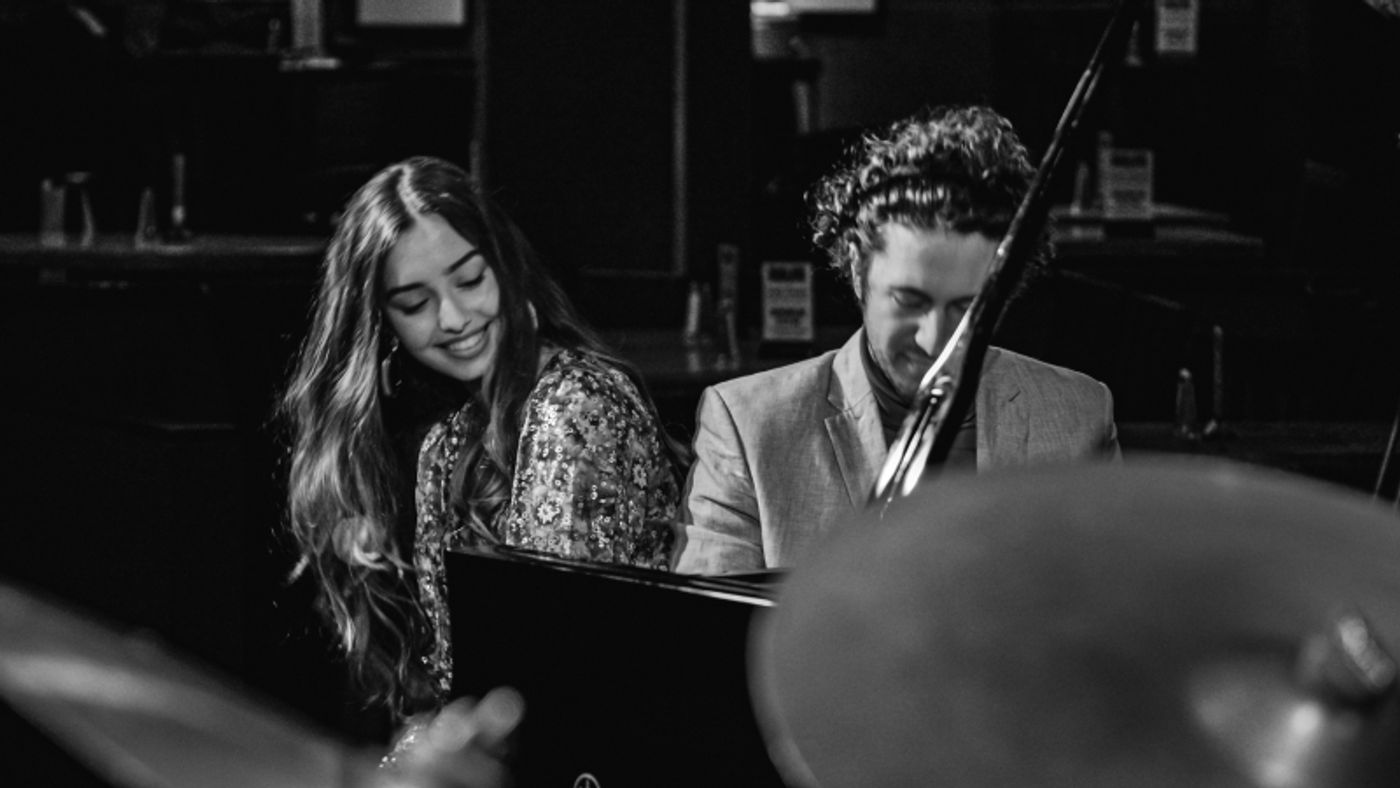
I'd like to backtrack to your studies - you're known for your jazz singing, but you mentioned that you're taking some acting classes. What is your artistic trajectory looking like for you right now?
It's a little fuzzy because I think about the past a lot more than I think about the future, which is something that I also want to work on in myself. I think at the core of it, I want to be performing; of course, I want to be singing, that's a huge thing. Whether acting's incorporated (because I really do love it), whether public speaking is incorporated (because I have recently gotten into writing and sharing) that would be really great. I think at the core of it, it's about creating art, feeling that I can understand myself better through the art, and performing - being on a stage. That's really all it is. It's not a super complex dream because my values are relatively simple.
You said that you spend a lot more time looking at the past and not the future. Do you take any other musical interests than the classics you're currently performing?
I do as of recently. For most of my life, I've been quite tunnel vision towards jazz, and I'm aware that that's not a great thing. So I'm trying to be more flexible and allow my music tastes to be more malleable these days. I've gotten into some classic rock because my dad has always loved Pink Floyd, and he played some of their music for me. We were talking about lyricism and I was very impressed by how profound their lyrics are, so I've been getting into a little bit of that - I listen to some Billy Joel, I listen to some Pink Floyd, - it's expanding a little bit.
Tell me he played Dark Side of the Moon.
Of course, he did! That was the first!
That's where you start with Pink Floyd though. I think you'll like The Wall too. It's quite theatrical and storytelling in its nature.
.jpg?format=auto&width=1400) I also listened to that. I was very impressed by what they did, and it's something that I want to bring into what I'm doing, I think, especially in the first couple of songs I heard which were "Comfortably Numb" and "Time", not only were the ideas that they brought to the table very interesting and well-articulated but they made the song sound like the experience of the lyrics. With "Time" they have the clock ticking - to me, it sounded like a heartbeat because, in reality, isn't time just measured by heartbeats? That got me thinking about time and the existentialism of it. I think that that's what good music does. And with "Comfortably Numb", it feels like what I would imagine to be a drug trip, which I think is so genius. That's something that I want to bring into what I do.
I also listened to that. I was very impressed by what they did, and it's something that I want to bring into what I'm doing, I think, especially in the first couple of songs I heard which were "Comfortably Numb" and "Time", not only were the ideas that they brought to the table very interesting and well-articulated but they made the song sound like the experience of the lyrics. With "Time" they have the clock ticking - to me, it sounded like a heartbeat because, in reality, isn't time just measured by heartbeats? That got me thinking about time and the existentialism of it. I think that that's what good music does. And with "Comfortably Numb", it feels like what I would imagine to be a drug trip, which I think is so genius. That's something that I want to bring into what I do.
It's a good mission statement. Did Lovesome Thing give you a chance to record songs that you've had a relationship with for a long time?
I think the song that I've known the longest on Lovesome Thing is "Ain't Got Nothin' But The Blues." I've known that since I was 13 - in terms of when I was starting to get serious about this, thinking about logistics of a career and the direction I want to go in, that song has been a part of my life since then.
So play with me for a second. I'll tell you my favorite tracks on the album if you tell me yours, but you have to go first.
Oooh! Ok! It changes of course, depending on the day, and I also haven't listened to it in a while... The one I'm about to say, I'm not sure that it's my favorite track on the album because they are very different, but it is one that no matter what mood I'm in, I am happy to listen to: "I'm Just a Lucky So And So." What about you?
Well, my first pick is going to be the song that I consider the greatest song ever written: "Lush Life."
Mmmmmmm. That makes me very happy. (Laughing) I was putting a lot of pressure on that one.
I love that song so much and I had such a good time listening to your rendition. All right, give me another one.
Thank you! Okay. Another one? Um, probably... "Lush Life."
Aaaah! So we have some cross-pollination of favorites here. Well, then, let's, cross-pollinate this: I love your version of "Ain't Got Nothin' But The Blues."
Ooooooh, yay! Thank you! That means a lot to me. (Laughing)
All right. Let's do one more.
Okay. We're doing top three. Hmm. I'm stuck between two. Okay. So I'm stuck between our "Chelsea Bridge/A Flower is a Lovesome Thing" and "It's Kind of Lonesome Out Tonight."
Those are both excellent choices, particularly the latter. So good. I'm going to go with "Still In Love."
Oh yeah. I mean, that's such a beautiful song, I love that song.
It made me so happy listening to it that I wanted to hit the back button, but I insist on taking the full journey the first time through with every record.
Thank you. There's a lot of integrity in that - that's very appreciated. Thank you.
It takes you on the journey that the artist wants to take you on.
So true. And I love that you have that mentality - a lot of people in this business need to have that mentality. I didn't used to listen to albums front to back - I used to cherry-pick the songs I wanted to listen to, I would listen to them out of order. Then a couple of years ago, my voice teacher said to me, "There is so much honor and integrity and artistic experience to be found in listening to the album front to back." So I started to do that and I love that you do that too.
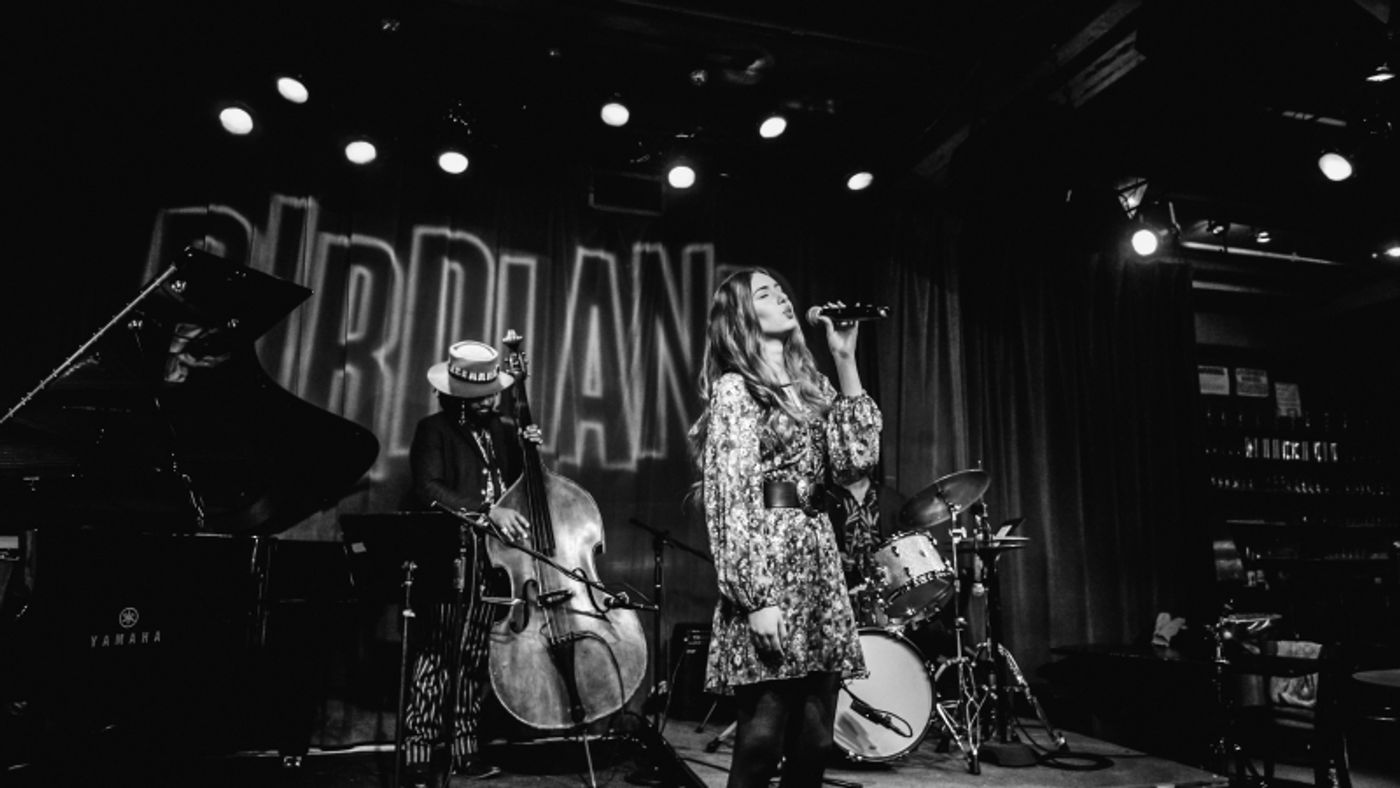
So is there a difference between having a favorite track on the album and a favorite song to record? What was your favorite song to record and why?
In this case, I'm not proving my point very well because my favorite to record was probably "I'm Just a Lucky So and So" but that's not because it's my favorite track on the album, and I do think that those can be different. "Lucky So and So" was my favorite because it was one of the more spontaneous adds to the album and more spontaneous recording experiences. I loved doing that ending where we were all coming back down from the climax... it was relatively abrupt, and that's what I like about it. We were just improvising. We had a few takes and in one of the takes that we didn't use, there was a moment where Emmet and I kind of quoted each other back and forth for a little bit, and you could hear me giggle; had we used that take, we would have let it be because that's the realism of it.
It's jazz. It's not meant to be perfection. It's about the story and the emotion and the experience of doing it. So that was a lot of fun, and we were so clicked into each other. It just ended all together and that makes me very happy to listen to. That was a really fun recording experience but the reason I like that track on the album is because it's a good song and I like our arrangement.
Mother's Day is right around the corner and I know your mother has been very instrumental in your work. What is the most valuable lesson you've learned from your mom?
Do everything to the best of your ability. No matter what the outcome is, you don't have any regrets, and that makes it so that you know that you put your all into it. You can be proud of what you've done.
We are in the time of equality, so we need to talk about your dad for a second. What was his reaction when he heard the album for the first time?
With my dad, it wasn't that we had the album and we played the entire thing for him. He was very much part of the collaborative process. He wasn't in the studio all the time like my mom was, but he has helped me technically, been a voice teacher to me, he helped me work interpretively on the songs. He was a huge part of this, and I'm so thankful that he was because he has a really intelligent mind for the music and for the interpretation, for allowing it to just be emotional and not necessarily perfect all the time.
So I have one last question for you today Anais: who are Duke and Billy?
Human.
Human?
I think that's the simplest answer. And I know that because I think it's easy to idolize these famous composers who compose things that feel very ethereal at times, but something that has touched me so much about their music, in particular, is that it is as complex as human beings are, as life is. I think that they have encompassed the human experience in their music, what I would imagine to be the human experience, at least - it has made me feel more okay with myself and all of my human complexities. So I think, beyond geniuses, beyond sensitive music makers, I think at the core, they are very human and that is what they bring to their work.
Anais Reno, thank you for a really, really pleasant and informative chat.
Thank you, you too. This was a lot of fun, I'm really happy to talk to you.
Visit the Anais Reno website HERE
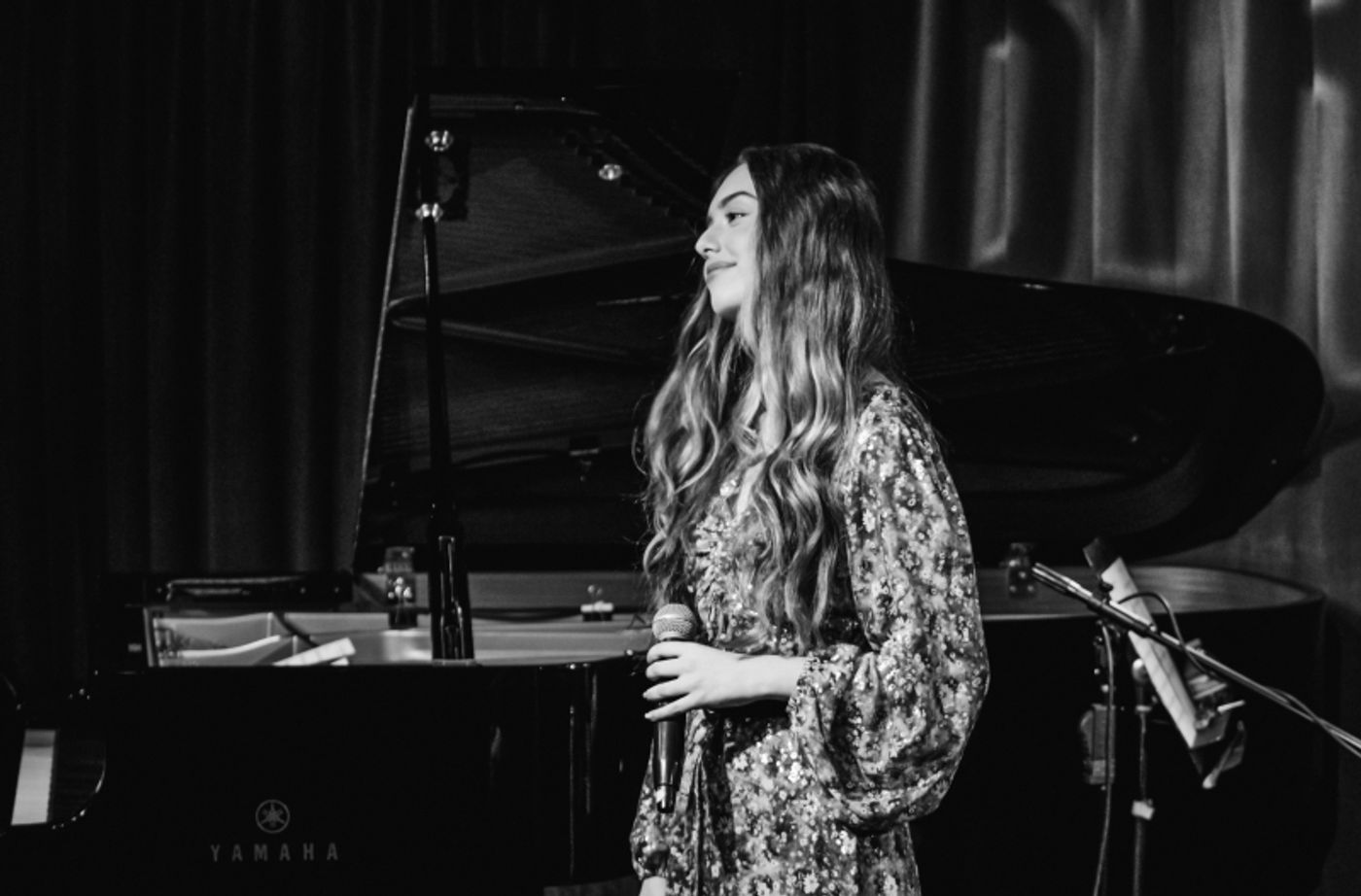
Videos

